At the 10th edition of the New Media Conference (NMC 2025), held at The Podium, Lekki, Lagos,
MTN Nigeria’s Public Relations Manager, Dr. Lakinbofa Goodluck, stressed that the future of new
media in Africa depends on connectivity and digital inclusion.
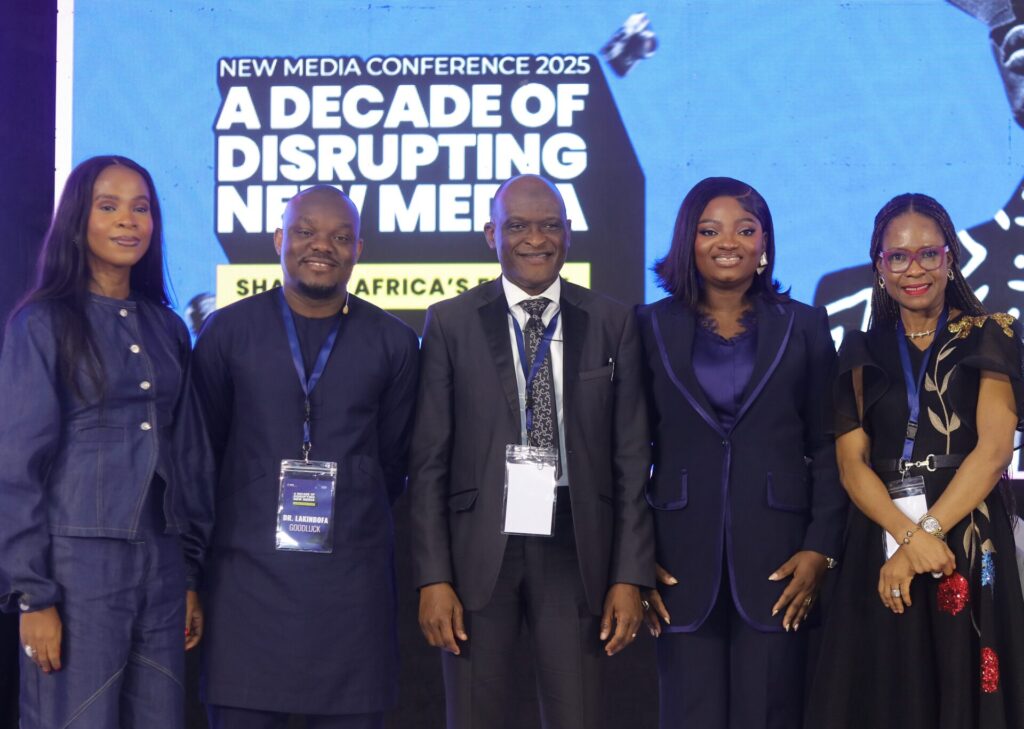
Speaking during a panel moderated by Njideka Akabogu, Regional Manager, East Africa at ID Africa,
Goodluck highlighted that telecommunications infrastructure forms the bedrock of media disruption
across the continent. “The entire disruption we see in new media today is powered by
telecommunications. What we’re witnessing is convergence, where traditional and digital platforms intersect. Many television programmes are now consumed on platforms like YouTube, and all of that
depends on reliable connectivity” he said.
He explained MTN’s philosophy of ensuring access for all, noting that “Everyone deserves the
benefits of a modern, connected life, which means having access to the internet and the opportunities
it unlocks. At its core, this is about digital inclusion: ensuring that individuals, regardless of location or
background, can participate fully in the digital economy. And with digital inclusion comes a ripple
effect of other forms of inclusion, financial inclusion, access to education, healthcare, and the ability to
connect, create, and thrive in today’s world”.
Citing the company’s investments in next-generation networks, Goodluck highlighted MTN’s role in
expanding opportunities for creators. “When we were launching 5G, we brought people together to
experience what 5G can do, especially for creators. If you create content and want to put it on
YouTube, say a 20 GB content, on 4G it will take you about 10 minutes to upload. But with 5G, you
can upload it in less than one minute. That helps your ability to channel content quicker to your
audience and do whatever you want to do with it.”
However, he acknowledged persistent challenges in Nigeria’s operating environment. “You go abroad;
you don’t have to think of power when you’re setting up a base station. But in Nigeria, you have to
think of power, you have to think of vandalism. Between January and July alone, MTN experienced
over 5,000 cuts of fibre cables, mostly from construction work. Every time you cut a cable, hundreds
of thousands of people are affected,” he explained.
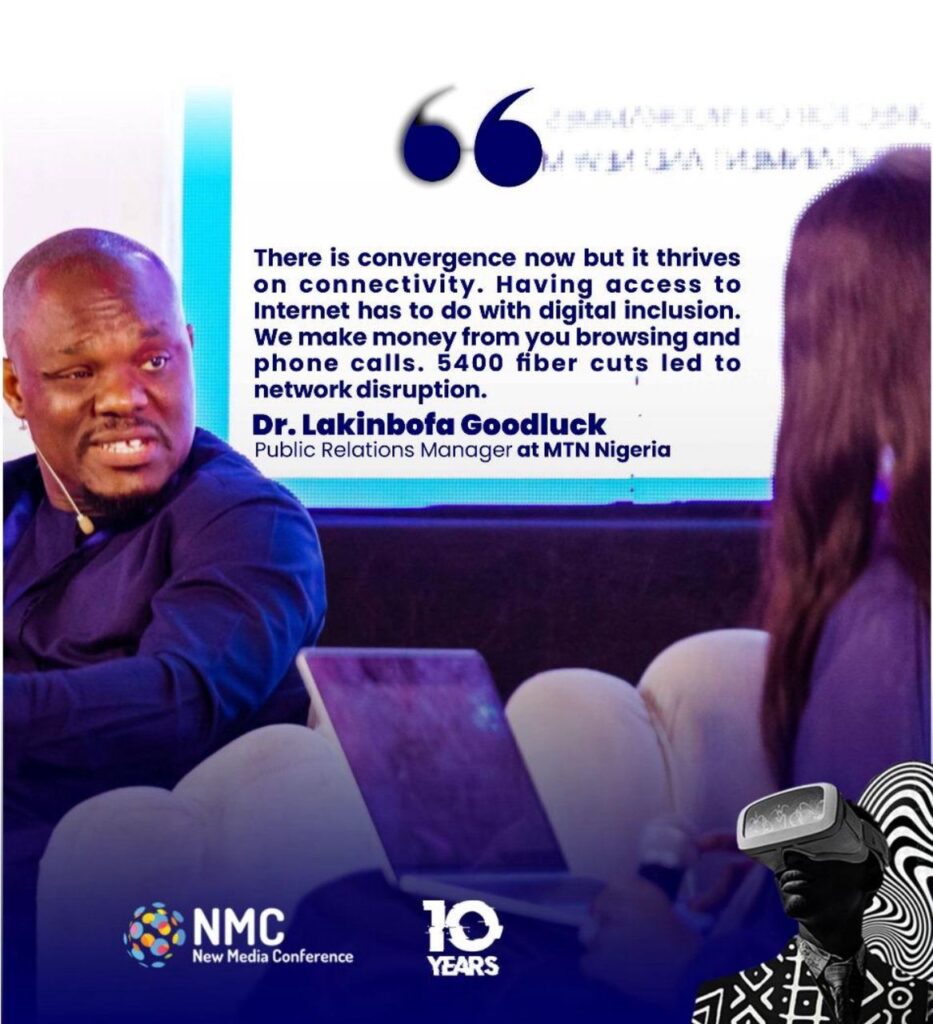
He urged greater public awareness and government enforcement to protect infrastructure,
commending ongoing efforts to criminalise vandalism under Nigeria’s Critical National Infrastructure
programme.
Goodluck also drew attention to the smartphone affordability gap for consumers and creators.
“There’s a GSMA report that says about six out of 10 people still do not have access to a smartphone.
If people cannot afford a smartphone, they can’t create content. We don’t make phones, but there are
ongoing conversations to ensure that smartphone prices become more affordable. When we get to
that point, more people will be able to use the internet.”
His remarks echoed the broader theme of the conference “A Decade of Disrupting New Media:
Shaping Africa’s Future” which explored how Africa can balance innovation, accessibility, and
authenticity in digital communications.
The panel underscored the urgency of addressing infrastructure gaps while ensuring that African
creators and consumers alike are not left behind in the continent’s rapidly evolving media landscape.
The panel featured leading industry voices including Yinka Adebayo, Group Executive Director at
Omnicom Media Group West and Central Africa, Atinuke Babatunde, Executive Head Content and
Channels at MultiChoice West Africa, Sisi Yemmie, award-winning content creator and digital
entrepreneur, and Olukunle Folarin, Director of Programmes at TVC Entertainment and New Media.
The conference featured the unveiling of the NMC 100, a curated list of 100 individuals and
organisations who have shaped Nigeria’s digital media space over the past decade, celebrating a
transformation that has positioned African content creators and brands on the global stage.

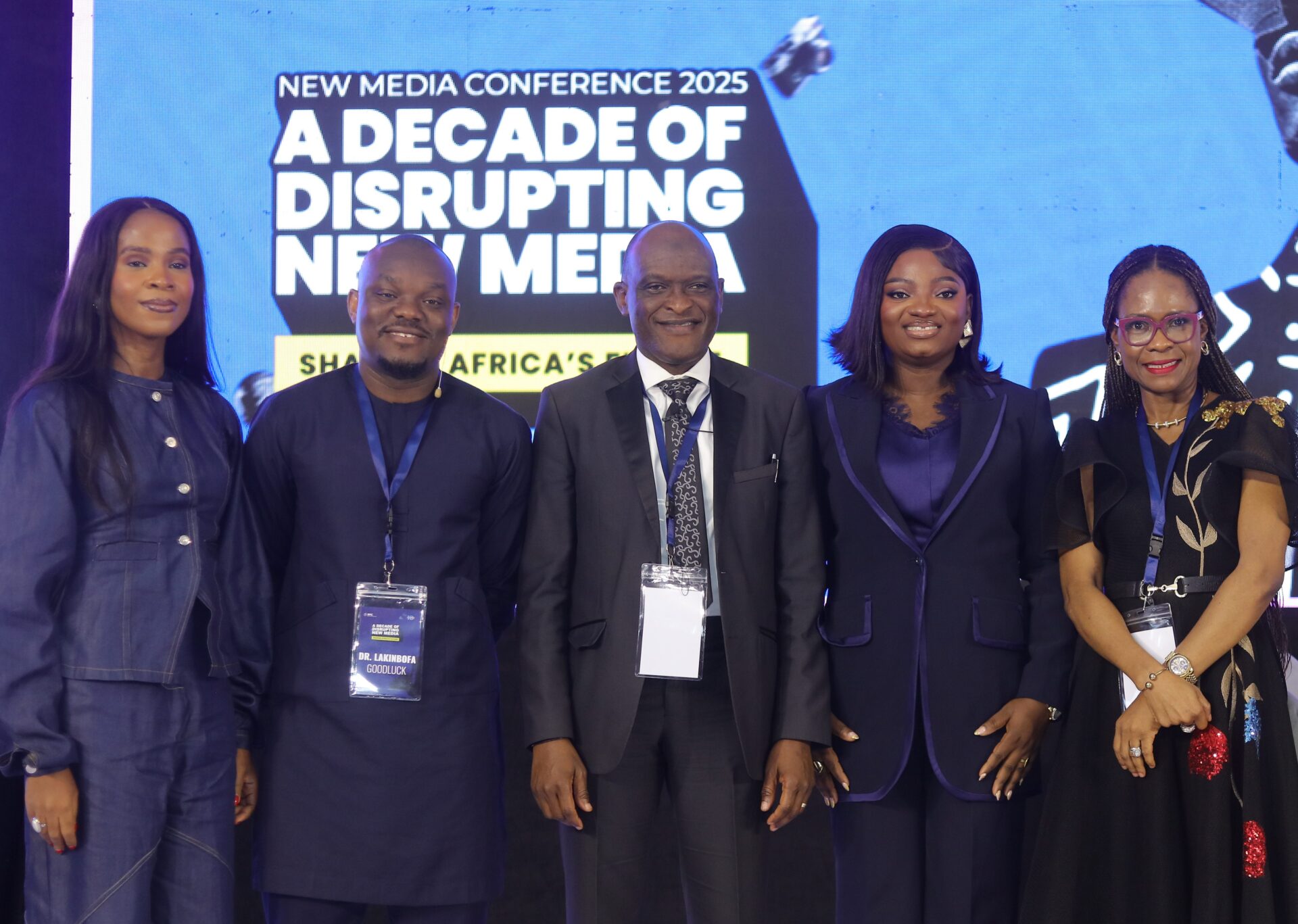

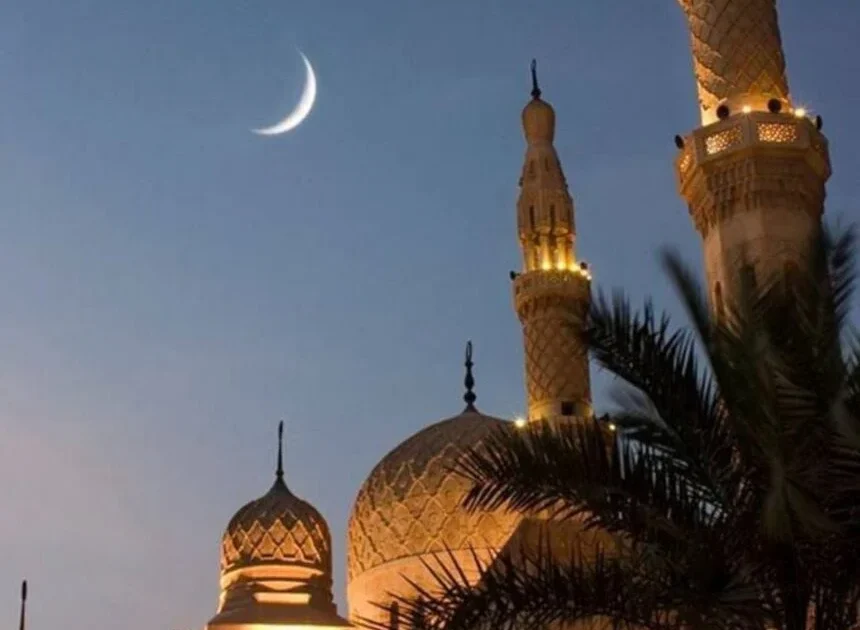
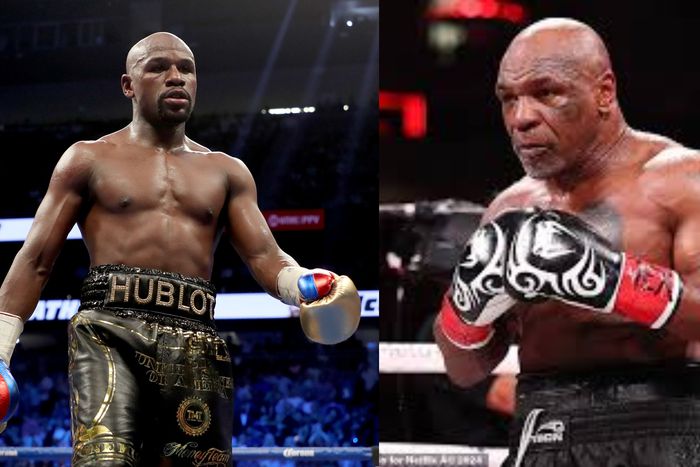
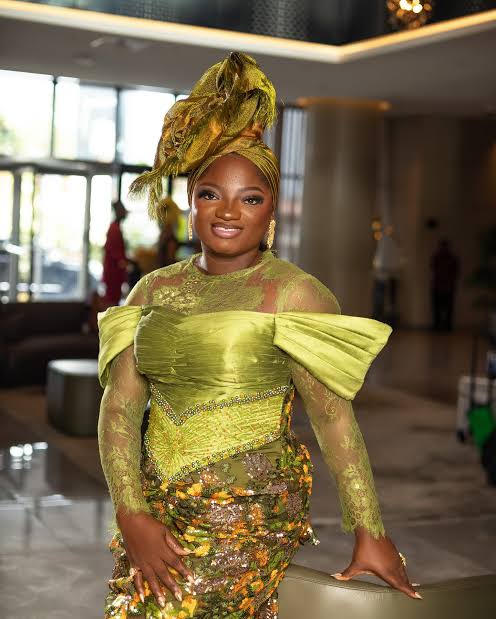
Leave a Reply